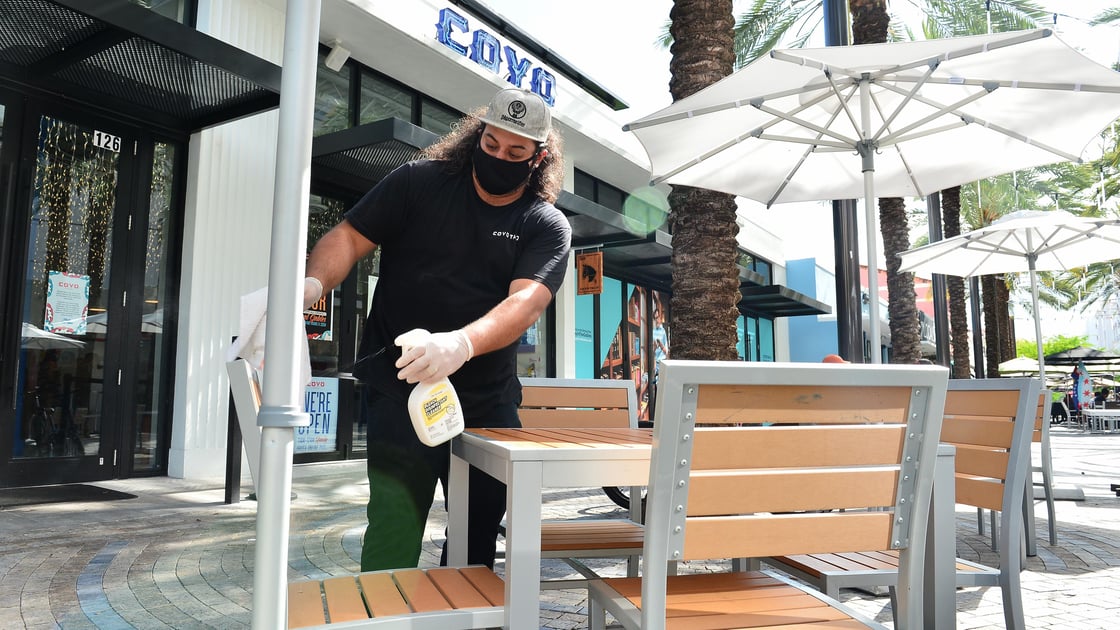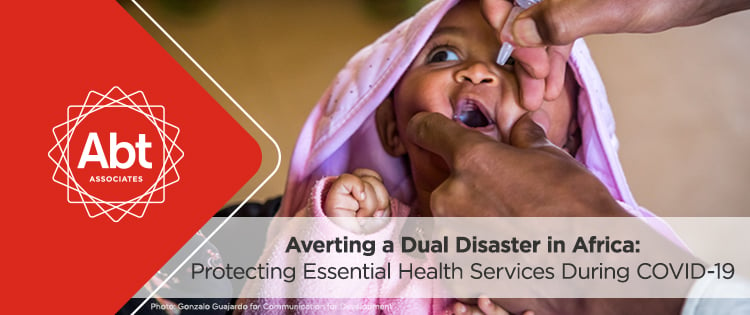NIST to Digital Forensics Experts: Show Us
What You Got
Digital forensics experts often extract data from computers and
mobile phones that may contain evidence of a crime. Now, researchers at the
National Institute of Standards and Technology (NIST) will conduct the first
large-scale study to measure how well those experts do their job. But rather
than testing the proficiency of individual experts, the study aims to measure
the performance of the digital forensics community overall.
In this study, to be conducted online, participants will examine
simulated digital evidence, then answer questions that might arise in a real
criminal investigation. The exercise should take about two hours, and
participation is voluntary. Enrollment is now open, and the online test will
be available for approximately three months.
Read
More
|
|
In Case You Missed It
|
|
|
Tuesday, June 2, 2020
June 2020. NIST Forensic Experts. Getting Data from Damaged Phones, and Data for Investigations.
June 9, 10th UNDRR COVID-19 Webinars. UNDRR Global Education and Training Institute.
UNDRR COVID-19 webinars: NEXT WEEK
NEXT WEEK
Wednesday, 10 June
- UNDRR Global Education and Training Institute, DESA and UN Office for Sustainable Development Webinar: Ensuring Resilience, Accelerating Progress – Examining the Impact of COVID-19 on the Sustainable Development Goals –Register here10:00 am (Republic of Korea) | 7:00 am (Bangladesh) | 1:00 pm (Fiji) Tuesday, 9 June, 9:00 pm (New York)
Related Resources:
- Past UNDRR COVID-19 webinars – see
each event for recordings and/or presentations.
- SRSG
Mami Mizutori together with the CEO of the International Science Council:
Opinion: From COVID-19 crisis comes opportunity to rethink risk - Republic of Korea COVID-19
experience sharing videos.
- COVID-19 pandemic resource
collection on PreventionWeb, updated daily.
*************************
NEXT
WEEK
UNDRR Global Education and Training
Institute, DESA and UN Office for Sustainable Development Webinar:
Ensuring Resilience,
Accelerating Progress – Examining the Impact of COVID-19 on the Sustainable
Development Goals
Wednesday, 10 June, 10:00 am (Republic of Korea) |
7:00 am (Bangladesh) | 1:00 pm (Fiji)
Tuesday, 9 June, 9:00 pm (New York), Get more information or Register now.
The webinar will examine
how national responses are reducing the impacts of COVID-19, especially
socio-economic impacts, to sustain the gains realized on the 2030 Agenda. It
will also showcase how national responses can achieve synergies to accelerate a
resilient recovery for the SDGs in the Decade of Action. It will discuss the
road ahead to 2030 and how current government responses can integrate disaster
risk reduction measures that respond to double or triple challenges many now
face as a result of climate change and COVID-19 socio-economic impacts.
June 3, 4, 5th, 2020. UNDRR COVID-19 Webinars.
UNDRR COVID-19 webinars:
Wednesday, 3 June
Wednesday, 3 June
- UNDRR Americas and the Caribbean Webinar:
Climate Change and Resilience in Times of COVID-19: How to Articulate Integrated Responses to the Health, Economic and Climate Crisis in LAC (Spanish-English interpretation available) – Register here
10:00 (Panama) - UNDRR Americas and the Caribbean Webinar: Climate Change and
Resilience in Times of COVID-19: How
to Articulate Integrated Responses to the Health, Economic and Climate
Crisis in LAC (Spanish-English
interpretation available)
- In the
context of increasing complexity, interdependence and systemic nature of
risk, there is a need for multi-sectoral, multi-stakeholder and regional
coordination aiming to continue the preparation and implementation of mitigation
actions for different recurrent and latent hazards in the current pandemic
scenario. This webinar will explore risk reduction and resilience building
at the heart of economic recovery (an opportunity to address inequalities
and vulnerabilities).
- Wednesday, 3 June, 10:00 Panama, Get more information or Register now.
Thursday, 4 June
- UNDRR Americas and the Caribbean Webinar: Disaster Risk Management
and Institutional Response to the COVID-19 Crisis | Los Sistemas
Nacionales de Gestión del Riesgo de Desastres en el contexto de la crisis
del COVID-19 (Spanish-English interpretation available)
- UNDRR Americas and the Caribbean Webinar:
Webinar Disaster Risk Management and Institutional Response to the COVID-19 Crisis | Los Sistemas Nacionales de Gestión del Riesgo de Desastres en el contexto de la crisis del COVID-19 (Spanish-English interpretation available) – Register here
11:00 (Panama) - National
risk and emergency management systems in the Americas and Caribbean are
engaging in different ways and adopting different commitments in the
governance of the current COVID 19 crisis. This approach has been neither
planned nor foreseen and has been uneven in many ways: from countries
where the Systems have played an important role, to countries where they
have had virtually no intervention. The emergency or disaster laws of many
countries have been the foundation for actions taken during and after the
emergency.
- Thursday, 4 June, 11:00 Panama, Get more information or Register now.
Friday, 5 June
- UNDRR Americas and the Caribbean Webinar:
Cities of the Americas and the Caribbean facing COVID-19: Resilient Cities | Reflexiones sobre el futuro de las ciudades en las Américas y el Caribe. Sesión 4, Ciudades Resilientes (in Spanish) – Register here
11:00 (Panama) - UNDRR Americas and the Caribbean Webinar:
Cities of the Americas and the Caribbean Facing COVID-19: Resilient Cities | Reflexiones sobre el futuro de las ciudades en las Américas y el Caribe. Sesión 4, Ciudades Resilientes (in Spanish) - The
multidimensional impact of COVID-19 threatens the development progress
achieved under Agenda 2030. The scenario of a major economic contraction
could plunge nearly 28 million people in the region into poverty as a
result of impacts on the economy and creative industries, among others. It
is in this scenario where, from the understanding of systemic risk, it
becomes necessary to rethink the cities of the future we want.
June 2020. Call for papers. IOC/UNESCO Intergovernmental Coordination Group and International Journal of Disaster Resilience in the Built Environment
Call for
papers for the Special issue of the International Journal of Disaster
Resilience in the Built Environment, the second in a joint initiative between
with the IOC/UNESCO Intergovernmental Coordination Group for the Indian Ocean
Tsunami Warning and Mitigation System (ICG/IOTWMS) : “Technology enabled tsunami early warning: opportunities, gaps, barriers
and challenges”
|
Special issue of the International Journal of Disaster
Resilience in the Built
Environment, the second in a joint initiative between with the
IOC/UNESCO
Intergovernmental Coordination Group for the Indian Ocean
Tsunami
Warning and Mitigation System (ICG/IOTWMS)
“Technology enabled tsunami early warning:
opportunities, gaps, barriers and challenges”
Guest
Editors:
Dr Chandana Siriwardena, Department of Civil
Engineering, University of
Moratuwa, Sri Lanka
Dr Harkunti Rahayu, Institute of Technology
Bandung, Indonesia, Chair of
Working Group 1, Intergovernmental
Coordination Group for the Indian
Ocean Tsunami Warning and Mitigation System
(ICG/IOTWMS)
Contents of
the themed issue:
This special issue focuses on ICT to support
decision making and information dissemination in tsunami early warning. We
anticipate a wide range of contributions, including discussions on situations
associated with pandemics such as COVID-19 and other biological hazards.
These may include, but are not limited to the following:
1. Evidence to support the gap of developing
technology enabled tsunami early warning
2. New technological applications to enhance
the disaster risk knowledge
3. Development of hazard maps, vulnerability
maps and simulations to investigate different scenarios
4. Use of technology to enhance evidence-based
decision making
5. Application of technology enabled
stakeholder management platforms and tools
6. Use of social media, mobile based
applications and digital platforms to maintain real time information as
a tool of tsunami risk communication and
tsunami early warning dissemination
7. Integrating tsunami early warning with
other hazards, including pandemic threats
8. Community receptiveness, perception and
trust towards technology enabled tsunami early warning
mechanisms
9. Barriers and challenges in the application
of technology into tsunami early warning mechanisms
Submissions
We are calling for abstracts (200 words) with
a proposed title, and up to three key words. These will be reviewed against
the themed issue scope. Authors of the selected abstracts will be invited to submit
full papers according to the journal’s author guidelines:
http://www.emeraldgrouppublishing.com/products/journals/author_guidelines.htm?id=ijdrbe
Further instructions on the preparation of
full manuscripts will be issued to authors of selected papers.
Any queries or abstracts should be submitted
to: Dr Chandana Siriwardena, Department of Civil Engineering, University of Moratuwa, Sri
Lanka, email: chaasi@uom.lk
Important
deadlines
• 15th July 2020: Deadline
for abstract submission
• 31st July 2020: Decision
and call for full papers
• 31st October 2020: Full
paper submission
International
Journal of Disaster Resilience in the Built Environment
The International Journal of Disaster
Resilience in the Built Environment (IJDRBE) is edited by Professor Dilanthi Amaratunga and
Professor Richard Haigh from the Global Disaster Resilience Centre at the
University of Huddersfield, UK. IJDRBE aims at developing knowledge and
capacity in strategic and practical aspects of disaster risk reduction,
response and reconstruction to reduce the impact of natural and anthropogenic
hazards. The journal publishes original and refereed material that
contributes to the advancement of the research and practice and provides
contributing authors with an opportunity to disseminate their research and
experience to a broad audience. The Journal is indexed in British Library,
Construction and Building Abstracts, ICONDA – The International Construction
Database, Business Source Premier (EBSCO), ABI INFORM Global (ProQuest), Cambridge
Scientific Abstracts (ProQuest), INSPEC, SCOPUS and in Emerging Sources
Citation Index (ESCI) by Clarivate Analytics (formerly ISI Thomson Reuters).
IJDRBE is
also a top QI quartile ranked Journal.
If you are keen to know more about the
journal, editors can be contacted, as follows:
Professor
Dilanthi Amaratunga – d.amaratunga@hud.ac.uk
Professor
Richard Haigh – r.haigh@hud.ac.uk
Both at the Global Disaster Resilience Centre
at the University of Huddersfield, UK.
Further details on the
journal is available at: http://www.emeraldgrouppublishing.com/ijdrbe.htm
|
|
Black Emergency Managers
Association International
1231-B Good Hope Road. S.E.
Washington, D.C. 20020
Office: 202-618-909
bEMA International
|
|
|
Cooperation,
Collaboration, Communication, Coordination, Community engagement, and
Partnering (C5&P)
A 501 (c) 3
organization
|
|
Listen to others, then .... June 2020
|
Tuesday, June 2, 2020, 2:00 -
3:30 p.m. EDT
To help the world navigate
reopening after COVID-19 shutdowns, Brookings has launched Reopening
America & The World, a series presenting ideas on how to
protect public health, restart the economy, and promote social
well-being.
On Tuesday, several authors of
the first publication, “Reopening
America: How to Save Lives and Livelihoods,” will discuss how to
reopen the U.S. in ways that can better society. Dr. Jennifer Nuzzo of Johns
Hopkins Bloomberg School of Public Health will deliver keynote remarks.
|
June 2020. Hurricane Season. The Coronacanes are Coming
|
|
|
|
June 3, 2020. Averting Dual Disasters Protecting Health Services During COVID-19
|
||||
|
|
||
|






